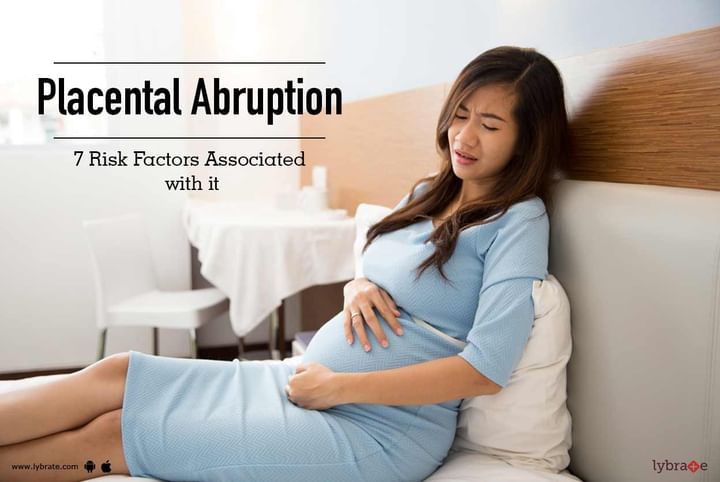Placental Abruption - 7 Risk Factors Associated with it
Are you in the last trimester of pregnancy and experiencing symptoms such as abdominal pain, vaginal bleeding, uterine tenderness and back pain? This might be an indication of a condition called placental abruption. This is a serious, but rare pregnancy complication in women. The placenta is the structure, which develops in the uterus for nourishing the growing baby. When the placenta peels away from the inner uterine wall before delivery, placental abruption occurs. The condition can deprive the growing baby of oxygen.
Risk factors
There are several factors, which increase the risk of placental abruption. They are as follows:
- High blood pressure: High blood pressure, be it chronic or because of pregnancy, increases the risk of placental abruption.
- Abdominal trauma: Certain trauma caused to the abdomen such as a fall or a blow to the abdomen increases your risk of having the condition.
- Substance abuse: Women who smoke and use drugs such as cocaine during pregnancy are more likely to have placental abruption.
- Premature rupture of the membranes: The growing baby is supported and surrounded by a fluid-filled membrane or the amniotic sac. When the sac leaks or breaks before labor, there are high chances of placental abruption.
- Blood clotting disorders: Any health condition which impairs blood clotting may increase the chance of placental abruption.
- Multiple pregnancy: For women who are carrying more than one baby, the delivery of the first baby may lead to changes in the uterus. This may cause placental abruption before the next baby is delivered.
- Maternal age: Placental abruption is more common or likely to occur among women who are above the age of 40.
Treatment
It is not possible to reattach a placenta, which gets separated from the wall of the uterus. The treatment options for placental abruption depend on several circumstances. They are as follows:
- The baby is not close to full term: If the abruption is mild, your baby has a normal heart rate, and it is too early for him to be born, you might need to be hospitalized for monitoring. If the bleeding ends and the baby is in a stable condition, you might be able to go home and rest. In some cases, medicines are given to the baby for making his lungs mature.
- The baby is close to full term: If your baby is near full term, and the placental abruption is less, a closely monitored vaginal delivery is undertaken. In case of a progressive abruption, an immediate delivery might be required via C section.
It is recommended for you to consult a doctor on experiencing any symptom of placental abruption. This will help you in protecting your baby from any harm.



+1.svg)
